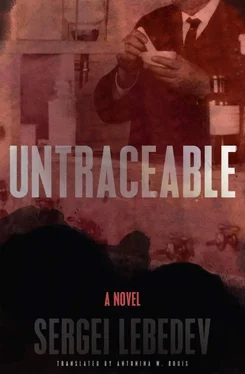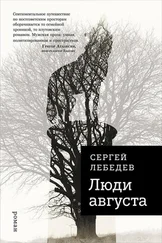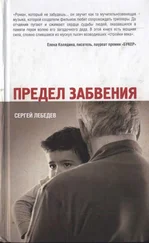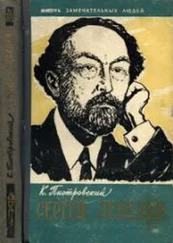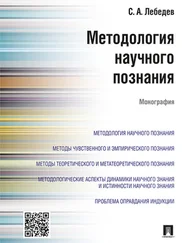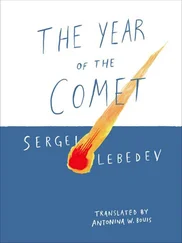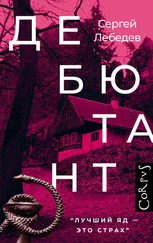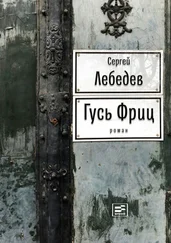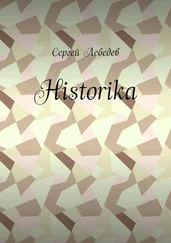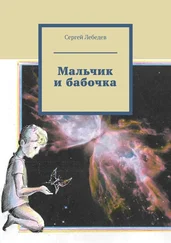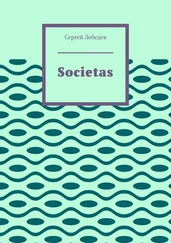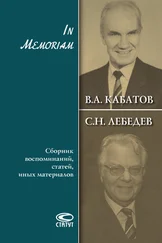Сергей Лебедев - Untraceable
Здесь есть возможность читать онлайн «Сергей Лебедев - Untraceable» весь текст электронной книги совершенно бесплатно (целиком полную версию без сокращений). В некоторых случаях можно слушать аудио, скачать через торрент в формате fb2 и присутствует краткое содержание. Город: New York, Год выпуска: 2021, ISBN: 2021, Издательство: New Vessel Press, Жанр: Современная проза, на английском языке. Описание произведения, (предисловие) а так же отзывы посетителей доступны на портале библиотеки ЛибКат.
- Название:Untraceable
- Автор:
- Издательство:New Vessel Press
- Жанр:
- Год:2021
- Город:New York
- ISBN:978-1-939931-90-0
- Рейтинг книги:3 / 5. Голосов: 1
-
Избранное:Добавить в избранное
- Отзывы:
-
Ваша оценка:
- 60
- 1
- 2
- 3
- 4
- 5
Untraceable: краткое содержание, описание и аннотация
Предлагаем к чтению аннотацию, описание, краткое содержание или предисловие (зависит от того, что написал сам автор книги «Untraceable»). Если вы не нашли необходимую информацию о книге — напишите в комментариях, мы постараемся отыскать её.
Untraceable — читать онлайн бесплатно полную книгу (весь текст) целиком
Ниже представлен текст книги, разбитый по страницам. Система сохранения места последней прочитанной страницы, позволяет с удобством читать онлайн бесплатно книгу «Untraceable», без необходимости каждый раз заново искать на чём Вы остановились. Поставьте закладку, и сможете в любой момент перейти на страницу, на которой закончили чтение.
Интервал:
Закладка:
Vera.
Forgotten name.
Once he and Vera watched an episode of Animal World . It was about iguana fry spawned on the beach: thousands are born, many hundreds die, dozens reach the water, three or four survive, one will live to sexual maturity.
That was when Kalitin was seriously thinking about the idea for Neophyte. It was like seeing a reflection of his own thoughts: thousands of neophytes, nameless numbered substances born in test tubes; most will be useless, dozens will show some capability but will have flaws that override it; only two or three will get indexed and early names; they will fight the real battle for life, for realization, for a place in the registers and production plans.
There will be only one Neophyte with a capital N.
He felt his loneliness acutely, the useless burden of their marriage: Was Vera capable of sharing that? Understanding that he was also a neophyte, one of the few who thirsted for fulfillment more than anything?
Vera, whose name meant faith. He could say the word without meaning her.
It turned out that there was meaning in their marriage. She had saved him. And given him a discovery.
He was required to run the test with Neophyte’s first, experimental version. Predecessors of the substance. He was unhappy with it, he imagined that a mistake had crept into the calculations and the mixture was not strong enough.
Vera volunteered. She was qualified to do it.
A crack in the valve they’d overlooked. The valve exploded, a metal shard broke the plastic box and the super reliable protective gear. The exhaust ventilation worked well, only a minuscule amount got inside the clothing. Just a few molecules, you could say. But it was Neophyte, the real Neophyte. Kalitin had correctly guessed the base composition.
Neophyte had killed Vera instantly.
It was the first thing it did.
It took payment for its birth.
Neophyte was exactly what Kalitin had dreamed.
Not just a substance.
It was that, and not his wife’s death, that stunned Kalitin. He could not admit that he was afraid.
Frightened not as a chemist whose substance turned out to be devilishly effective. But as a creator, whose creation, intended to be a faithful servant or loyal soldier, came to life beyond measure, escaping obedience, insubordinate to its creator.
Neophyte was too fierce. It should have been forgotten, written off as a failure, the way they put down mad dogs of fighting breeds that cannot be trained.
But Kalitin could not give it up.
He had put everything into it; he knew he would not have a second enlightenment.
Neophyte was so secret that Vera’s body could not be sent to the hospital morgue. Neophyte had touched her and she became a vessel for the secret.
The autopsy showed there were no traces of the substance. Kalitin’s hypothesis was confirmed. Neophyte was untraceable.
They expressed condolences, gave him leave, wanted to send him to a sanatorium in the south. He said he wanted to return to work. It would be easier for him there. For Vera’s sake.
They allowed it.
He began his attempts to tame his creation, solve the problems of preservation, stability—without that he could not hope for certification, for its production.
But Neophyte turned out to be excessively sensitive and high-spirited. If he changed the original composition just an iota, the whole became unbalanced. Neophyte was born to be just as it was; limited in use because of its wildness, its instant passion to kill.
For years, Kalitin struggled for minute improvement; he was close to the success he begged from fate. But the country fell apart, the Island collapsed, and Neophyte was not born officially, remaining nonexistent, unrecorded, as if its name doomed it to perpetual beginner status.
Neophyte.
Kalitin had proposed the name long ago. He hated ciphers that meant nothing. They seemed to steal something from the substance, something that appears when a thing has the right name, a pet with the perfect diminutive, a secret of the soul, a drawing of fate.
He went through dozens of names, checked dictionaries—none of them worked.
One day Kalitin took a walk on the edge of the testing ground. There was a ravine overgrown with angelica, a stream pouring from the slimy stone wall. Beyond the ravine were broken, tumbledown tombstones of an abandoned cemetery; the wooden village houses had rotted long ago, but the limestone slabs stuck out through last year’s flattened grass. There, at the ravine, Kalitin came up with clever, elegant, lively name: Neophyte, as if someone had placed it on his tongue.
There was no substance yet, no formula, no path to it—only his brazen idea.
He had joined Zakharyevsky’s laboratory not knowing that he would be working on chemical weapons. He had signed a nondisclosure agreement before he had anything to disclose.
Of course, the institute had other areas of work. He learned about them only later, after receiving his first independent assignment from Zakharyevsky.
Kalitin did not regret a thing. The ontology of death that he encountered as a researcher set before him scientific questions of incredible scope and depth.
Now he could admit that he had never been an atheist in the strict sense of the word. But he was not a believer, either. He knew that there was a higher power in the world. He knew it as a practitioner who had experienced epiphanies that could not be explained rationally. A prospector, a miner, depending on these insights, knowing how to find the intuitive path.
He did not ascribe them to God or the devil, to human nature or the qualities of knowledge.
Probably, deep inside, he thought himself an archaic creature, a shaman traveling through other worlds in the search of sources, artifacts of power. It was no accident that he was a collector; they did a lot of digging in the test field, and those were areas of ancient nomads, ancient stops along the river, and the land always yielded up gifts—ancient, original symbols of sacred, clumsy Paleolithic figures, and also flint axes and arrowheads.
Kalitin believed that he was a creator alongside other creators, since he did not draw water from some black well, did not find inspiration in blood and suffering. Huge eagles often circled above the Island; Kalitin liked the birds, liked the winds, the unrestrained sunsets, the wild expanses. It was from them that he drew vision, inspiration, the sense of the significance of his own life. This fact was proof to him that he was like all the other talents; divisions were hypocritical. Anyone who condemned him simply did not know that the same wind and sunsets ran in his blood as in that of any other gifted person; Neophyte was as much a product of inspiration, risk, and art as was the Winged Victory of Samothrace, as Mendeleev’s table of elements.
Kalitin remembered and could relive the first flash of understanding, the guiding meteor.
He was working on Zakharyevsky’s orders with vegetable substances, stable, acting instantly, but leaving traces just as stable. He tried to lower their visibility, blurring, dissolving, turning them into a transparent veil.
But the stubborn substance would not yield, and Kalitin, furious, threw his pencil on the floor and stared at the lab ceiling, a cupola of the former church, with exhaust vents hanging down. Only one angel in the corner, cut off at the chest, remained of the original painting. Anywhere else it would have been painted over, but the Party committee was not allowed inside the lab. Kalitin liked looking at the thoughtful face in a gold wreath, at the narrow golden tube pressed to the angelic lips. The angel was in Kalitin’s power, a ghost of another era, herald of a trial that did not take place, having outlived the prerevolutionary world in which his image had sense, the direct power of significance.
Читать дальшеИнтервал:
Закладка:
Похожие книги на «Untraceable»
Представляем Вашему вниманию похожие книги на «Untraceable» списком для выбора. Мы отобрали схожую по названию и смыслу литературу в надежде предоставить читателям больше вариантов отыскать новые, интересные, ещё непрочитанные произведения.
Обсуждение, отзывы о книге «Untraceable» и просто собственные мнения читателей. Оставьте ваши комментарии, напишите, что Вы думаете о произведении, его смысле или главных героях. Укажите что конкретно понравилось, а что нет, и почему Вы так считаете.
